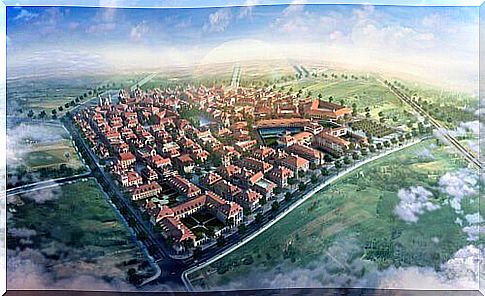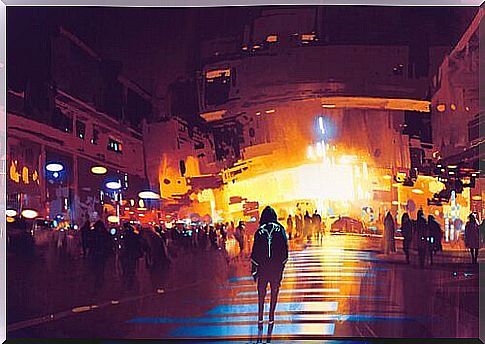The Expression Utopia: What Does It Really Mean?

It is common to use the term utopia in our everyday lives. It is a useful argument or counter-argument when discussing ideal or hypothetical societies. However, it can have a much deeper meaning than what society shows us. Therefore, it is important to ask ourselves a question: What exactly is utopia?
First of all, let’s look at the etymology of this concept. The term utopia comes from the Greek word “ou-topos”, which literally means “no place”, which represents a place that does not exist.
The first time this word was used was in Thomas Moore ‘s book “Utopia”. This famous story takes place on an island with a peaceful and idyllic government. It also criticizes the political organization of the 15th and 16th centuries.
To gain a better understanding of the term utopia, we will concentrate on its definition and usefulness in this article. This will help us to use the term while avoiding crossing the narrow line that defines utopia as something that is impossible and unattainable.
Definition of the term utopia
For a very long time, society has dreamed of an idyllic world and a way to have a perfect society. This is where the use of the term utopia began. It consists of the theorizing of what a perfect society should be like, including its government, society and people. An important aspect is that this hypothetical world does not sound an immediate applicability, it does not look for a political system that can be used for the world’s current context.
Once this idea is theorized, the goal is to look for the best possible system. It only seeks to shape an idea in theory, without considering the degree of difficulty when using such an idea or system in the real world. Therefore, we can hypothetically create the perfect society. However, the idea of a perfect society is somewhat ambiguous and subjective. The idea has changed all the time throughout history and depends on each person’s perspective.

We can find many examples of utopia throughout history. Plato’s utopia may be one of the oldest. In this utopia, society was divided into three classes. The members were placed in a class depending on their skills and abilities. The three classes were political class, military class and the class of peasants. Consequently, the good operation and management of these three classes will lead to a perfect and peaceful society.
We can also find more modern utopias, such as utopian socialism. The purpose of this idea was to criticize capitalism and the exploitation of individuals for their work. This utopia is based on a cooperative and self-governing society. The optimal development of society would take place due to mutual support, collective work and decision-making processes through assemblies.
Utopia and its usefulness
Utopia is a deep theme with a wide range of ideas that are widely used by philosophers, thinkers and politicians. But the question is: What is the use of creating an ideal and perfect society in theory when it is difficult to apply in reality? Many people mistakenly believe that utopias lack pragmatism or that they have only a literary purpose, but these ideas are far from the truth.
When we consider the usefulness of a utopia, we can consider 4 different functions. These will vary depending on the author’s views when creating an idyllic society.
The 4 different functions:
- Criticism: The purpose is to criticize the current social organization. Building a utopian system helps to measure how wrong the current society is. This encourages people to ask questions about the current system and to appreciate the need for change.
- Evaluative: This function, which is closely linked to the previous one, emphasizes the importance of utopia in the study of different societies. Utopias help us to assess the different methods of social organization and to better understand our own political and social system.
- Hopeful: We can also consider a more humanistic side of the problem. Some utopias have the ability to generate hope. The purpose is to convey the idea that a better society is possible.
- Guiding: Utopia should be a goal or an end. Establishing a perfect or ideal goal helps to ensure steady progress and breaks the false illusion that we live in a perfect society.

The term utopia is usually a symbol of the impossible. It has a connotation of something that is idealistic and of little use in society, but this impression is wrong. Utopias help us identify a goal and serve as a guide. This is important since people will always strive for the best.









